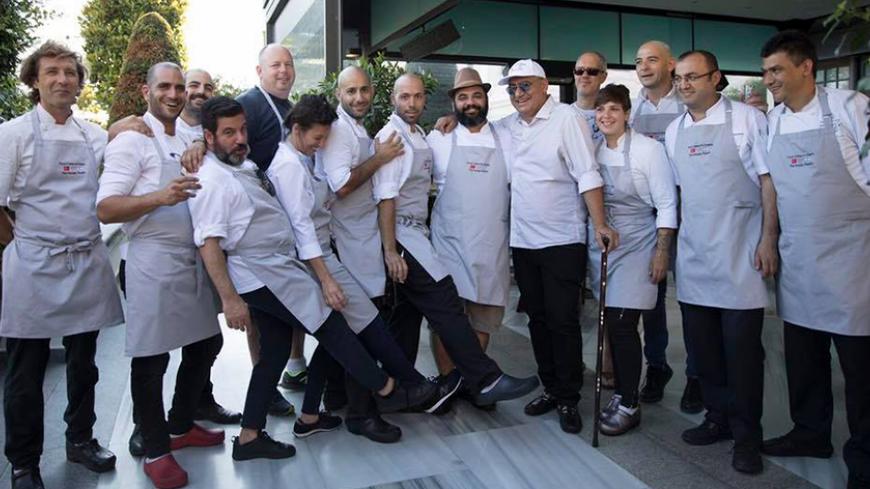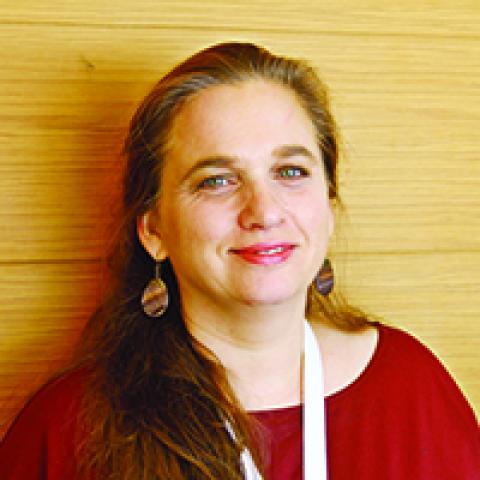It took quite a few months for David Dudi Califa to decide to come back to Istanbul following the attack by a suicide bomber on March 19, 2016, on one of Istanbul’s busiest streets. Califa, a food blogger from Israel, was leading a gastronomy tour when an Islamic State (IS) bomber killed three of his friends and injured 10 more of his group, including himself.
“Even while I was lying in a pool of blood and broken glass on that unfortunate day, I remember making a vow to myself that hate will not win. A little over a year after the incident, I’ve decided to start again to build the bridge of friendship between the Turkish and Israeli people,” he told Al-Monitor when he visited Istanbul on July 20.
Califa told Al-Monitor a year ago that although he and his friends had been physically and emotionally wounded, he still loved Istanbul and was determined not to hate the city that altered their lives forever. He came back and back again since then, several times, making new friends and healing his wounds around tables sharing food.
For a gourmet, the medium to build friendships is inevitably the table. Each time he visited Istanbul, Califa was more convinced that food brings people together and a good table chases away the bitter taste of fighting words and acts of violence that set nations apart.
Then he started reflecting on a peace mission with the motto, “Food connects hearts,” where he would bring top Israeli chefs to Istanbul and whip up a friendship dinner in memory of their friends lost last year. “While it took time for my wounds to heal, the incident only reinforced my belief that food remains the best way to bring people together," he said.
The peace mission started with six chefs; they soon ended up being a gang of 10. The moment they arrived in Istanbul, they ended up in the streets, visiting shops and markets including Istanbul’s Spice Bazaar, a remnant from the 17th-century Ottoman renewal plan at the very spot of a former Jewish market as part of the Yeni Cami (New Mosque) complex.
They tasted the best the city has to offer, from the finest restaurants to hole-in-the-wall street food places and popular eateries. They explored the culinary and cultural treasures of Istanbul on both sides of the Bosporus — one day shopping like locals in the bustling open air Kastamonu market on the European side, and the next day taking a boat ride up toward the Black Sea to taste the freshest fish.
Their merciless guide, Sinan Hamamsarilar, a foodie blogger who knows every taste corner worth visiting in the town, offered them an ambitious itinerary: On certain days the tight schedule included four lunches in a row, and at certain spots — like the famous local restaurant Ciya in Kadikoy (Asian side) — they were served feasts that resembled four lunches combined together. The venues ranged from the classics, such as the typical meze, fish and raki, to high-end chef’s cuisine places.
After devouring Istanbul for three days, they started to cook. Inspired by the city, the chefs brought in their own interpretations connecting Israeli and Turkish cuisines, using local Turkish ingredients to create a fusion of both cultures. The Middle Eastern meze spread included hummus, labneh, baba ganoush, halloumi, an amazing kibbeh nayeh and charcoal grilled lamb sweetbreads. The team of Israeli chefs was from all around Israel, as well as having outlets around the world.
As they cooked, they sang and occasionally toasted glasses of Recanati wine made of Marawi grapes for friendship. “Serefe” and “l’chayim,” words for cheers, echoed on the shores of the Bosporus. The mission was accomplished — the dinner meant for peace did indeed connect hearts through food.
But even the best of friends do not see eye to eye on everything, and in this case the bone of contention was the hummus. Israeli chefs did not regard the Turkish hummus as the real one. The kindest comment on Maksut Askar’s hummus at his restaurant Neolokal was that “it was tasty but not hummus.” Askar took it gracefully, telling Al-Monitor, “This is the taste of my mother’s hummus, and of course their mother's can be different.” It seems that peace can be achieved at the table, maybe with the sole exception of hummus.








